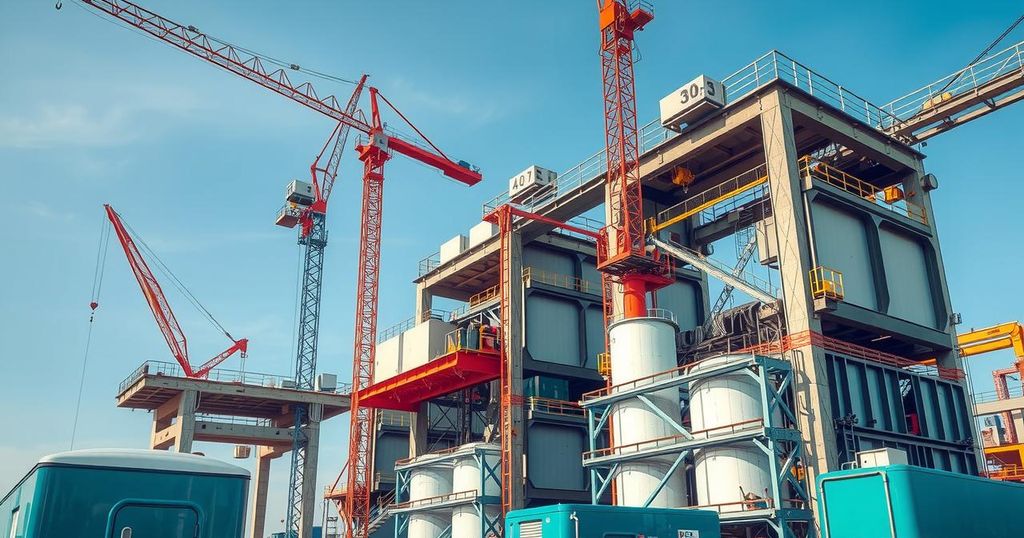Brazil Sues BYD Over Alleged Slave Labor Conditions at Construction Site

Brazilian prosecutors are suing BYD and two contractors for alleged slave labor conditions affecting 220 workers at a construction site in Camacari, Bahia. Findings include workers living in degrading conditions, forced labor, and severe salary deductions. The MPT is seeking substantial damages after the companies declined a proposed agreement to rectify these issues.
In a significant legal move, Brazilian prosecutors have launched a lawsuit against BYD, the prominent Chinese electric vehicle manufacturer, as well as two contracting firms, over serious allegations of human trafficking and conditions resembling slavery at a construction site. Documents obtained by AFP reveal that this case involves 220 Chinese workers who were discovered in distressing conditions at a new BYD plant in Camacari, Bahia, last December.
The Brazilian Ministry of Labor, known as MPT, reported findings of ‘degrading working conditions’ at the site, which is poised to be BYD’s largest electric vehicle manufacturing facility outside of Asia. Disturbing accounts from the site included workers sleeping without proper mattresses and a reported incident where 31 individuals shared a single bathroom, raising significant health and safety concerns.
Further investigation revealed that laborers exhibited visible skin damage, likely due to the prolonged exposure to harsh sun conditions while working extensive hours. The MPT also indicated possible forced labor, citing illegal contractual clauses, passport confiscation, and severe pay deductions, with workers allegedly losing as much as 70 percent of their earnings. In some cases, security personnel monitored workers, creating an atmosphere of intimidation at the site.
In response to the allegations, BYD’s Brazilian division moved to terminate its contract with Jinjiang, the contractor implicated in the conditions reported. Although Yanjiang has refuted the claims regarding slavery, the MPT has proceeded with the civil suit, aiming to secure 257 million reais (approximately $45.3 million) for collective moral damages as well as individual compensation for the affected workers.
The lawsuit against BYD, Jinjiang, and Tonghe Intelligent Equipment (now known as Tecmonta) was initiated after these companies did not agree to adhere to a “conduct adjustment agreement” proposed by Brazilian authorities. In a public statement, BYD asserted its intention to cooperate with the MPT and reiterated its unwavering commitment to human and labor rights, emphasizing adherence to Brazilian and international labor laws.
Chinese officials are also weighing in on the matter. Mao Ning, spokesperson for the Chinese Foreign Ministry, emphasized Beijing’s dedication to protecting workers’ rights, insisting that Chinese companies operate within legal frameworks, supporting the legitimacy of workers’ conditions.
The legal action against BYD and its contractors underscores widespread concerns regarding labor practices in global supply chains, particularly in the construction of high-profile projects. Allegations of harsh conditions and human trafficking highlight the need for stringent regulation and oversight in labor practices, especially in foreign operations. As the case develops, the commitment of companies to uphold human rights standards will be scrutinized further.
Original Source: www.communitynewspapergroup.com





